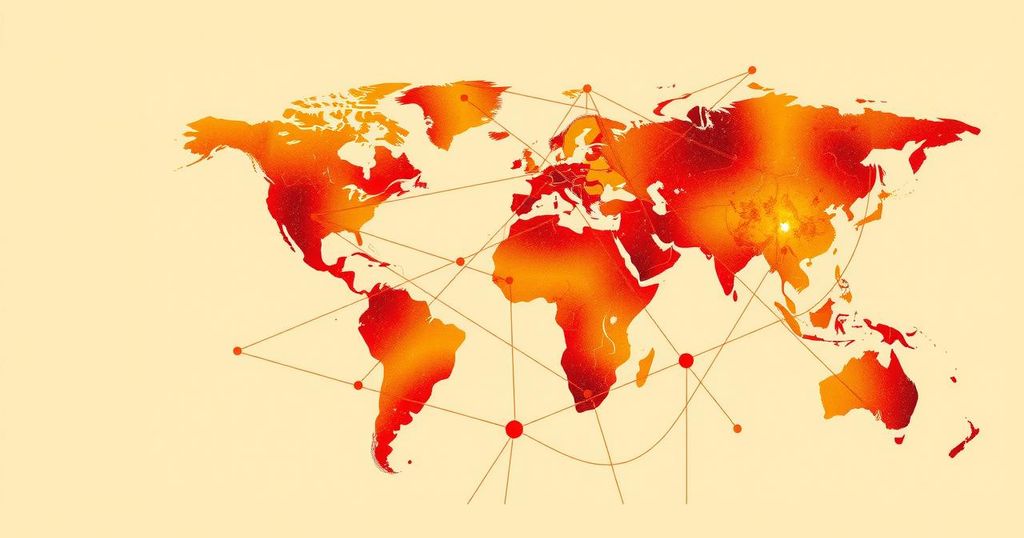Crime
AFOLABI OPASO, AFRICA, ARREST, CHARTERED INSURANCE INSTITUTE OF NIGERIA, CRIME, DESTINY, EDO, ELIZABETH NDUBUISI - CHUKWU, HUMAN TRAFFICKING, IKEM CHUKWUBUIKEM, ISLAMIC TIJANIYAT, LAW ENFORCEMENT, NORTH AMERICA, OLUWASEGUN OLANREWAJU, SENEGAL, SOUTH AFRICA, UNITED STATES, US, US BUREAU OF DIPLOMATIC SECURITY, VIOLENCE
Daniel O'Connor
0 Comments
Protecting Nigerians Living Abroad Amid Rising Violence
The ongoing harassment and murder of Nigerians abroad spotlight weaknesses in Nigeria’s foreign policy. Recent cases, including the killing of an 18-year-old musician in Ghana and other extrajudicial deaths, raise serious concerns about the safety of Nigerians overseas. With over 300 Nigerians reportedly killed abroad since 2016, the government must prioritize the protection of its citizens and seek justice for victims, while also addressing the root causes of mass migration.
The alarming trend of harassment and murder of Nigerians abroad has spotlighted critical weaknesses in Nigeria’s foreign policy. The recent death of Destiny, an aspiring musician from Edo State, in Ghana’s Volta Region, serves as a tragic reminder. This 18-year-old was killed after being accused by another Nigerian of not sending back funds from a shared business, leading to a brutal attack in his own apartment.
According to reports by The PUNCH, approximately 300 Nigerians have faced extrajudicial deaths while abroad between 2016 and 2023, with South Africa being particularly dangerous due to xenophobic violence responsible for over 200 fatalities. One notable case involved Elizabeth Ndubuisi-Chukwu, who was found dead in a Johannesburg hotel room in June 2019 during a conference—her demise raised serious questions regarding the circumstances surrounding her death.
In another disturbing incident this past December, Winnipeg police were involved in the fatal shooting of Afolabi Opaso, a 19-year-old who was reportedly experiencing a mental health crisis. Additionally, in 2023, a Nigerian medical student named Ikem Chukwubuikem was murdered in the Philippines, a horrific act that followed him being falsely accused of assault simply for seeking compensation on behalf of his girlfriend.
Moreover, 16 Nigerian pilgrims were tragically killed by Burkinabe soldiers in 2023 while on their way to Senegal, showcasing the pervasive risk Nigerians encounter outside their home country. The broader issue demonstrates that many of those subjected to violence abroad do not see justice served. This reality extends within Nigeria, where local victims often meet similar fates without accountability. The overarching narrative reflects a concerning lack of regard for Nigerian life both domestically and internationally.
In March, a Nigerian boxer named Oluwasegun Olanrewaju sadly collapsed and died in Ghana, yet his remains were not returned to Nigeria until June 17, raising serious concerns about the urgency with which such matters are addressed.
Comparatively, nations like the United States and Israel have robust measures to ensure the safety of their citizens overseas. The US Bureau of Diplomatic Security, for instance, actively aids citizens by providing critical information and support during emergencies abroad, while Nigeria struggles in this respect.
Nigerians living outside the country tremendously boost the economy with remittances exceeding $20 billion, which accounts for around 6% of Nigeria’s GDP as of 2024. Therefore, the government must do everything possible to protect them and ensure justice for victims of extrajudicial killings. However, it is equally important for these citizens to adhere to local laws and conduct themselves in a respectable manner.
Despite the urgency of these issues, President Bola Tinubu has been criticized for not appointing new ambassadors following a mass recall in September 2023—a situation that remains unacceptable. Social media has recently circulated videos suggesting an abandonment of the Nigerian embassy in Tehran during ongoing regional conflicts.
Nigeria’s leadership needs to tackle the underlying factors behind mass migration, as over one million Nigerians reside in the US, with a significant number also in the UK. Furthermore, more than 71,459 Nigerians obtained Canadian citizenship from 2005 to 2024, not counting those still living illegally in the country.
It is troubling that some Nigerians are drawn to crisis-stricken nations like Libya and Mali due to deceptive promises, subsequently encountering poverty and enslavement. There is a critical need for Nigerians to understand that opportunities at home, despite their challenges, can be fruitful—life abroad is often far from the ideal they envision.
Ultimately, it rests upon the government to prioritize the protection of its citizens as a fundamental component of Nigeria’s foreign policy.
The pattern of violence against Nigerians abroad underscores the urgent need for an overhaul of Nigeria’s foreign policy. High-profile cases of extrajudicial killings demand immediate governmental action to protect its diaspora and ensure accountability for such injustices. As Nigerians continue to seek opportunities overseas, the government is tasked with reinforcing a safety net that values their lives. Without systemic change, the harrowing trend of violence may persist, putting more lives at risk.
Original Source: punchng.com




Post Comment